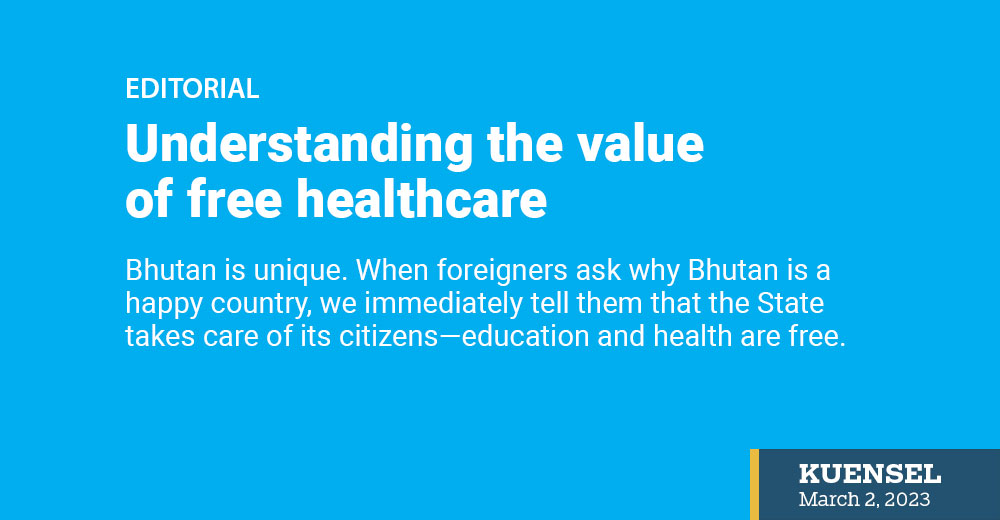Bhutan is unique. When foreigners ask why Bhutan is a happy country, we immediately tell them that the State takes care of its citizens—education and health are free.
However, some of these facilities are increasingly becoming expensive. The real danger is what would happen to a majority of the Bhutanese population if we decide to against free education and healthcare.
One of the disadvantages of free healthcare and education is the cost to society and the economy. With the growing population and demand for more and better health centres, the government has to spend more to provide these services.
And people become irresponsible. The amount of medicines that the Bhutanese discard is an example. For example, someone might get knee surgery and then decide to play basketball for the rest of their life because they don’t have to worry about paying for knee surgery when they need one. But the cost on the State increases.
According to the Healthcare financing in Bhutan 2018-2020, the curative services take a larger share of the government spending on health which constitutes 54.8 percent and 53.1 percent every year. But the real problem facing us today is that, because do not have to pay, we do not value services and medicines which is expensive for the State.
Not many will have forgotten the Move for Health programme which ensured continued funding support for free healthcare in Bhutan. Yet, people continue to discard medicines when they feel they are all right. Of course, Bhutan should not go for a more expensive healthcare system—a large number of our people will not be able to avail critical health services. What is important is that understand the burden on the State to ensure free healthcare for all Bhutanese.
What can we do then?
We can educate our people, not just about the value of a free healthcare system in the count but also about medicines and their dangers if we do not take care. Medicines that have outlived their usefulness can cause serious complications. But many Bhutanese, especially in the villages, do not care.
Awareness and education, therefore, are critically necessary. We have examples that have worked. Campaigns have a huge potential to make a difference.


